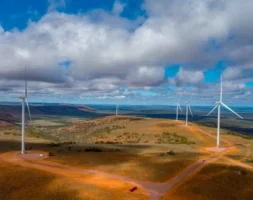One of the world’s largest producers of polysilicon, GCL-Poly Energy Holdings, has reportedly been forced to shut a major production facility in China after five explosions rippled through the facility.
According to California-based investment banking group Roth Capital Partners, the closure takes as much as 10% of the global supply of polysilicon – a key ingredient for solar power systems – out of the global supply.
Unsurprisingly, given the location of the reported explosions, there is very little actual detail as to what has happened. Bloomberg reported on Tuesday, quoting “a person familiar with the incident,” that “One of the world’s biggest producers of polysilicon … shut a major plant in China after it suffered a series of explosions”.
Bloomberg went on to clarify that “GCL-Poly Energy Holdings Ltd.’s 48,000-ton-a-year plant in Xinjiang suffered multiple explosions resulting from problems with the distillation unit,” again quoting their unidentified “person familiar with the incident” who wished to remain anonymous “because the information isn’t public.”
GCL-Poly Energy is apparently “inspecting the damage and has started repairs” though it is unsure when the polysilicon plant will be able to resume production.
Separately, California-based investment banking group Roth Capital Partners issued an advisory note about the explosions.
According to agencies with access to the company’s advisory notes, Roth cited reports of four flash explosions on Sunday, followed by a fifth on Monday.
Roth went further than Bloomberg and hypothesised that overpressure in the rectification and boron removal filter may have led to leakage of trichlorosilane gas which can then, in turn, react explosively with moisture in the air.
According to Roth, the five explosions were reported to have occurred during equipment maintenance at the facility and have apparently served to take 50MT of polysilicon production capacity offline.
Roth Capital Partners’ advisory note claimed that the explosions would also result in taking more than 10% of the global supply of polysilicon out of production. Bloomberg, separately, reported that shares of rival polysilicon producers rose on the news.
Seeking Alpha highlighted this shift in the market, pointing to shares of GCL-Poly Energy rival Daqo, which increased by around 25%.
Quoting a research note penned by Dennis Ip, an analyst with Daiwa Capital Markets, Bloomberg also explained that the explosions could impact supply for over a month and lead to other producers increasing their costs by 17%.









